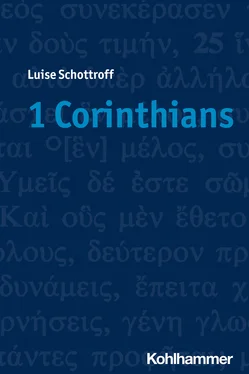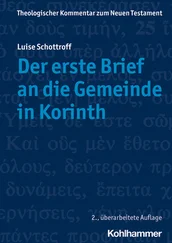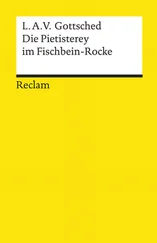Commentary
The Date of the Letter and the City of Corinth
The Date of the Letter
The chronology of Paul’s journeys and letters is based on estimates. They have a relatively reliable basis through Acts 18:11–12. There it is said that 18 months after the beginning of Paul’s time in Corinth a conflict between Paul and Jewish men in Corinth is brought before Gallio, the proconsul of the Roman province of Achaia. Gallio’s time in office can be dated with a certain degree of reliability from the middle of 51 to the middle of 52. 12At the time the letter is written, Paul is in Ephesus (16:8). This stay is presumably identical with his time in Ephesus that Acts 19:1–20:1 describes. The date of composition is assessed diversely in the research tradition. 13These assessments are based on the plausible assumption that, because of what is said in 1 Cor 15:32, Paul has already been in Ephesus for some time when he writes the letter. So, his stay in Corinth already lies some years (two to four) in the past. Nevertheless, there are contacts between him and the congregation through letters (see 5:9) and travelers (see only 16:10, 12, 17). There is an »animated exchange.« 14
The Congregation’s Location: Corinth
Strabo (about 64 BCE–19 CE), a geographer and historian, describes Corinth’s location: Corinth is called »wealthy« because of its commerce, since it is situated on the Isthmus and is master of two harbors, of which the one leads straight to Asia, and the other to Italy; … it was a welcome alternative, for the merchants both from Italy and from Asia, to avoid the voyage to Maleae [the southern tip of the Peloponnese] and to land their cargoes here. … 15The harbor to the West is Lechaion, the one to the East is Cenchrea (mentioned in Acts 18:18 and Rom 16:1).
By Paul’s time Corinth’s history had already been determined by Rome for a long period. Rome had destroyed the ancient Greek city in 146 BCE in a punitive action. »Corinth remained a long time deserted, till at length it was restored [in 44 BCE] on account of its natural advantages by divus Cæsar, who sent colonists thither, who consisted, for the most part, of the descendants of free-men.« 16In 27 BCE Corinth became the capital of the Roman province of Achaia, in which the proconsul resided and held court. Acts 18:12 mentions the bēma , the judicial bench on which the proconsul conducted public hearings. 17The city, like every large Roman city, was a place for business and worship, with shops and markets, artisans’ workshops, temples, theaters and baths. The travel writer Pausanias reports in 173 CE about Roman Corinth and its magnificent buildings. 18According to Plutarch, Corinth was a center for banking and finance. 19
There is information about the population of Corinth in the Roman imperial period in ancient literary sources. A graphic text by Alciphron (middle of the 3 rdcentury CE) speaks of many who were without work and hungry alongside of great riches. 20This description agrees with the general sociohistorical estimate for the city population in the Roman Empire. 2190 percent of the population lived at or below the minimum subsistence level. Paul’s First Letter to Corinth is itself an additional document subject to sociohistorical analysis, and it shows the social and economic differences in the population and the significance of slavery for the economy. 22
There was a larger Jewish share of the population in the city. Philo (30 BCE–45 CE) 23mentions a Jewish colony in Corinth (c. 41 CE). Additional witnesses to this Jewish colony in Corinth are 1 Corinthians (7:18, for example) and Acts 18:1–18. An inscription: [ syna ] gogē Ἑbr [ aiōn ] 24comes from a later period (probably the 4 thcentury).
For an understanding of the letter, it is important to keep in mind the social and cultural dislocation of many people in this city. This was conditioned both by Roman settlement policy (see the testimony of Strabo above) and the economic situation: two harbors, transit of goods, people and even ships that were dragged over the isthmus. The Roman imperial cult since the time of Augustus tried to integrate the people and coerce them into loyalty toward Rome. 25
1 Paul, according to the will of God called as an apostle by the Messiah Jesus, and Sosthenes the brother, 2 to the congregation of God in Corinth, to the people sanctified through the Messiah Jesus, who were called to live holy lives—and likewise to all people everywhere who call on the name of Jesus Christ. He is your and our Liberator. 3 May there dwell among you grace and peace from God our Origin and from our Liberator Jesus Christ.
4 On your behalf I am offering prayers of thanksgiving to my God, because in the Messiah Jesus God’s favor has been given to you. 5 For in Christ you have become rich in every way, gifted with all speech and all knowledge. 6 You are bearing witness to the Messiah, and you are demonstrating growing strength therein. 7 Therefore, you lack no God-given ability, while you await the revelation of our Liberator, Jesus, the Messiah. 8 He will strengthen you to the end, so that you do not face any accusation on the day of our Liberator Jesus Christ.
9 God is faithful. Through God you have been called into the community of God’s son, Jesus the Messiah, our Liberator.
This letter is the earliest Pauline letter in the New Testament. 26In his introduction to the letter Paul characterizes the senders only briefly, the addressees more extensively: the messianic assembly in Corinth.
1:1Paul says about himself that he has been calledto be an apostle by Jesus the Messiah in accord with the will of God. He speaks of his call in 1 Cor 9:1; 15:8–10; Gal 1:1, 13–17. Acts narrates the event in a legendary manner as a vision of Christ (Acts 9:1–22; cf. 26:12–18 and 22:6–16). In the interpretive tradition the call is often construed as a »conversion,« in the sense of a renunciation of Judaism. 27Paul himself understands his call as God’s call to bring the gospel to the nations, that is, to the new exodus in the name of the Messiah raised by God. Thereby he turns away from his work against the messianic congregations, but he does not turn away from Judaism. Now he works for a Jewish-messianic movement to which people from the nations are added. This work happens on God’s behalf, and he acts as God’s representative/apostle. The view that Paul had understood his apostolic office in the sense of the later ecclesiastical offices is inappropriate. Paul understands himself to be in continuity with the prophets in Israel (see Gal 1:15; Isa 49:1).
Right in the first line of his letter Paul mentions the Messiah/Christ Jesus. Christosis the Greek translation of the Hebrew word mashiach /anointed one, and Messiah is the Graecized form of the Hebrew word. Paul uses the word with and without the additional use of the proper name »Jesus« (see, for example, 1:6). Paul does not use the word Christos as a proper name, but it refers to the anointing, and thereby to a commissioning, by God. The anointed one embodies what God is doing to liberate the people. The word Christos is not a title that confers on people a super-human or divine quality that distinguishes them from all other people. The word Christos in Pauline usage should be translated by »anointed one« or »Messiah« and not exclusively by »Christ,« since in contemporary Christianity this word is frequently understood as an exclusive title und proper name of this one Messiah Jesus.
The word draws on Jewish tradition. 28It plays a central role for Paul, as the nine-fold use of the term in the first nine verses demonstrates right from the start. »The anointing of Jesus is an important key to understanding that in his majesty as Messiah/Christ he is part of a community that supports him.« 29Paul can also say that God anoints the congregation (2 Cor 1:21). Paul clearly presupposes that God installs the Messiah as king. For Paul, the royal power of the Risen One is present and reaches into the future (see especially 15:20–28 and the discussion of 15:24). For Paul and the congregation, Jesus’ messiahship attains a central significance because it is the Messiah’s power that overcomes all other authorities and powers in the world (see on 8:5).
Читать дальше












